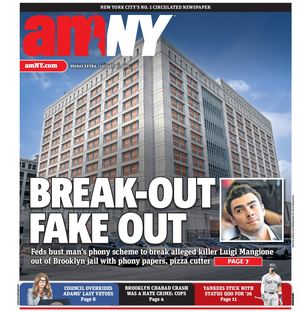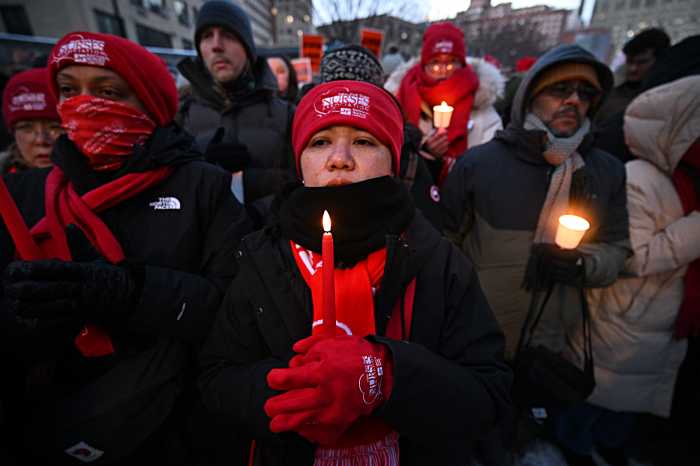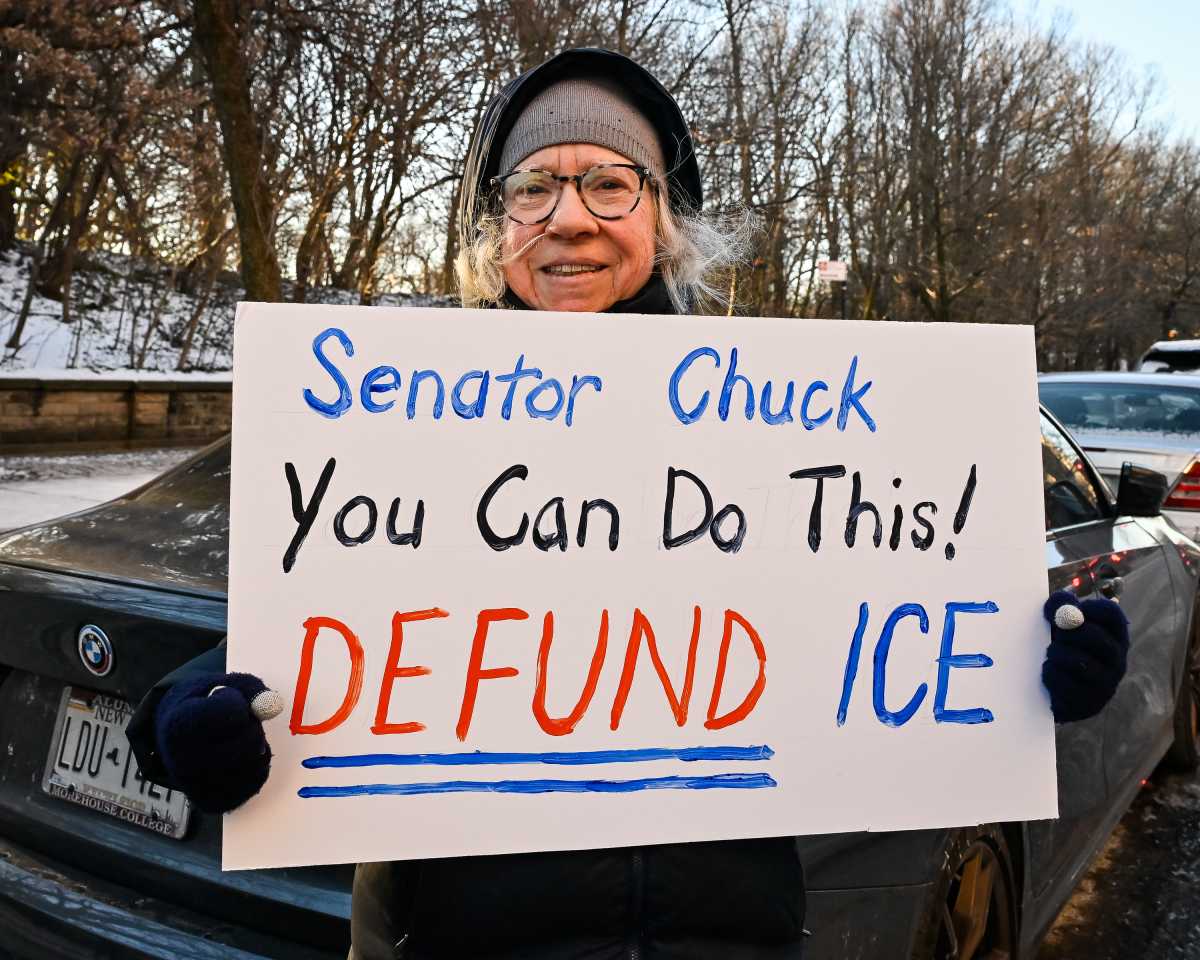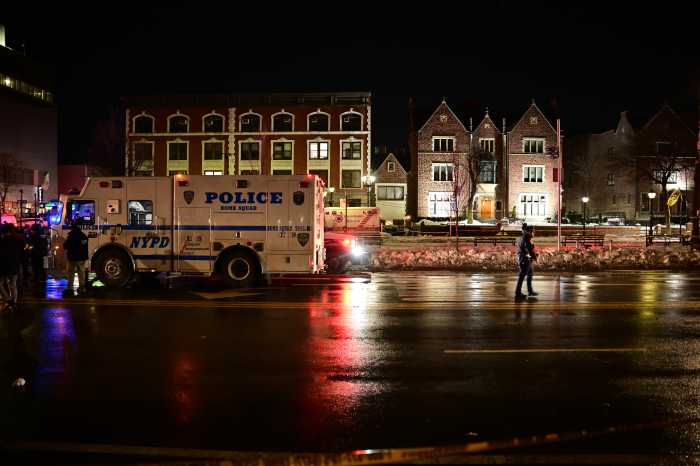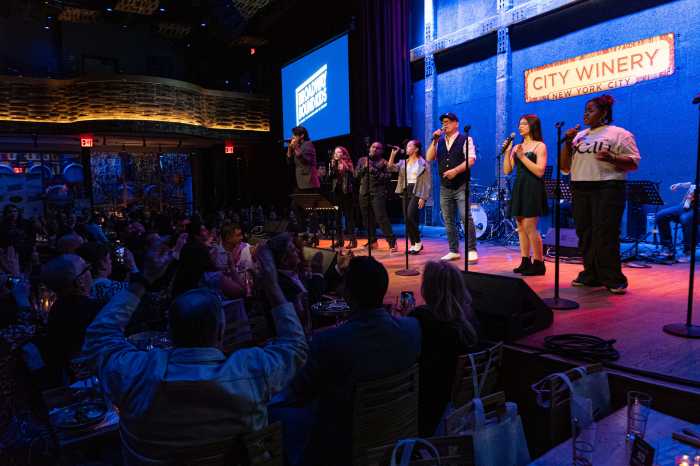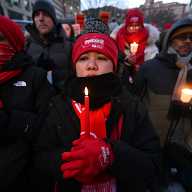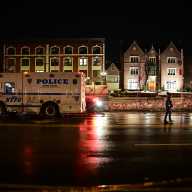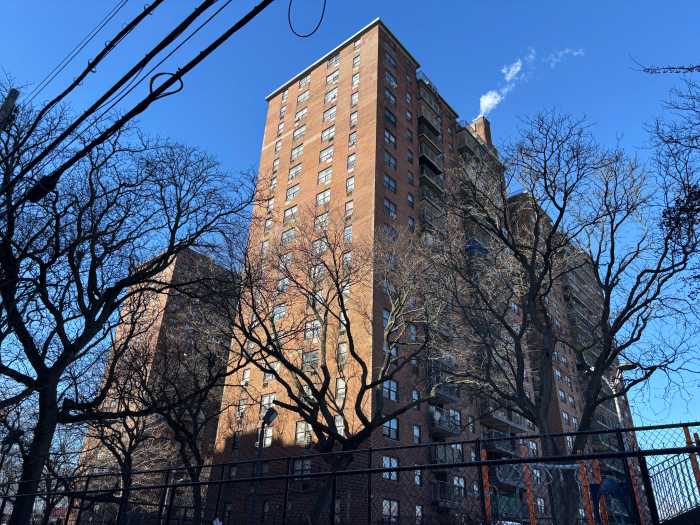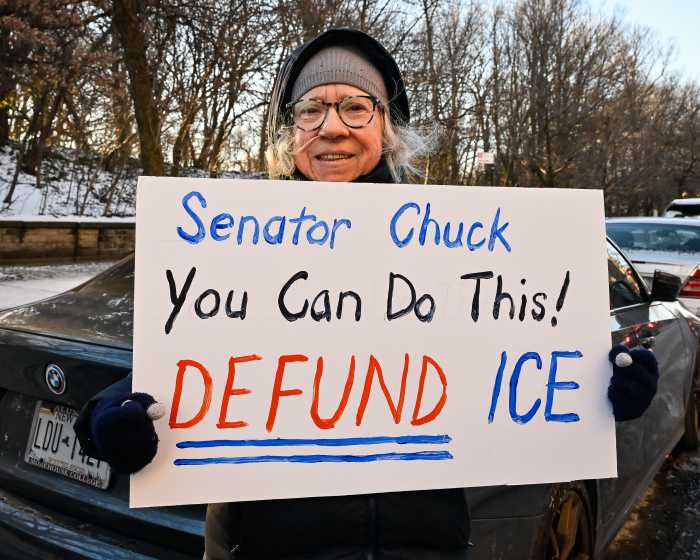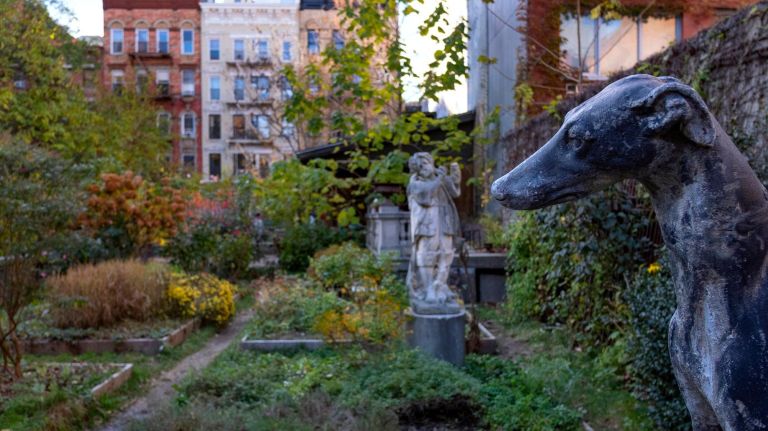
City Councilman Rafael Espinal is calling on the city to issue a moratorium on the development of affordable housing where community green spaces already exist.
The Department of Housing Preservation and Development is moving forward with two affordable housing projects in Manhattan — Haven Green in NoLita and Bolton Commons in Harlem — that would add a combined 152 affordable homes as well as other community benefits. The trade-off, however, is the destruction of two community green spaces: Elizabeth Street Garden and the Nelson Mandela Garden, respectively.
“Community gardens should not be treated like vacant lots,” Espinal said. “As predictions about our planet’s future grow increasingly bleak, we must preserve and expand green space in our city, not pave it over.”
The councilman joined dozens of advocates and representatives from both gardens on Thursday for a rally on the steps of the state Supreme Court building, where a legal battle is brewing over whether HPD has the right to develop on top of nature, even if it owns the land.
For years, the Nelson Mandela Community Garden on 126th Street in Harlem was filled with wildflowers that removed toxins from the soil and acted as a “reverse engine” for climate change, according to Rene Calvo, the garden’s leader.
“We took a lot in our neighborhood that had been vacant for over 30 years; a lot that had been a magnet for crime and debris,” Calvo said. “We de-paved it and transformed it into a thriving wildflower garden that supports bio-diversity at its most fundamental level.”
Despite attempts in court to save the green space, HPD demolished the lot on Oct. 26, but community members have vowed to continue fighting the development plans.
Downtown, proponents of the Elizabeth Street Garden echo similar sentiments, framing the green space as a place where residents can connect and enjoy the limited nature available in their neighborhood. Members of two nonprofits created in an effort to save the garden are also consulting with legal counsel with the hope of keeping HPD from paving it over.
Legally, the lots where the gardens exist are owned by the city. HPD has allowed community members to use the lots for interim community gardens but the agency contends they had always been slated for development.
The city’s affordable housing crisis is “one of the most critical issues” facing New Yorkers, according to HPD, which is why it needs to use all of its available city-owned land for development — even lots that house community gardens.
“We must consider every opportunity available to us that will help address the very real and very urgent need for more affordable housing in our communities,” a spokesman for HPD said. “We’ve been working diligently to balance supporting gardeners while also making sure hard working families can afford to stay in their neighborhoods.”
Espinal and garden advocates contend that the benefits of community green spaces are being minimized as a luxury amenity by the city as it pushes its affordable housing agenda.
Even in the case of Haven Green, where the city and developers have proposed a 6,700-square-foot public green space to make up for the loss of Elizabeth Street Garden, Espinal said it’s not an acceptable compromise.
“I think what the city has to recognize is that these community gardens are often in communities that have been disinvested in for a long time and these spaces provide just as much of a benefit as affordable housing can,” he said. “We shouldn’t be pitting the conversation around housing and green spaces. We should be able to find a way where they coexist and look for those lots that are not being used as a community resource and that are not real true green spaces in the city.”
The councilman said his office is now looking at drafting legislation to be considered in the City Council that would impose a moratorium on all HPD housing projects that would destroy community green spaces.
